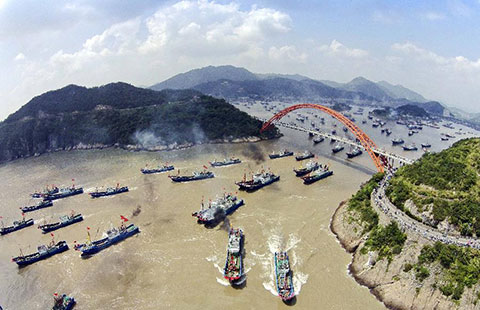Facilitating investment
Updated: 2012-06-29 08:07
(China Daily)
|
|||||||||||
Congo has tightened up law and tax codes and improved incentives, making business easier
With a poor ranking on the Ease of Doing Business scale, strong measures are being brought in to encourage investors to come.
The government has undertaken to significantly develop the transportation network and basic infrastructure, as well as encouraging the diversification of the economy. But besides these measures, it has gone all out improve the legal investment framework.
One of these measures is the signing of the OHADA treaty. The Organization for the Harmonization of Business Law in Africa treaty is in charge of harmonizing the business laws and institutions between 16 West and Central African nation. The treaty came into force in 1999.
The Congolese State also initiated an Investment Code in 2003 which outlines mentions the conditions in which investments operate, as well as guaranteeing advantages that will entice foreign investors.
As well as the common law taxation dispositions, the charter of investment grants tax reduction or tax exemptions, no customs duties, and exemption from capital gains tax, if the capital gain is re-invested and depending on the economic zone.
These measures affect new activities and companies as well as companies' expansions and projects of rehabilitation for companies located and duly established in Congo.
Business activities that are excluded from these dispositions include those related to commerce, brokerage and transactions, imports and the treatment of toxic waste.
As well as special common schemes, an SME scheme and free zones scheme, Congolese law has implemented five incentive measures related to:
Development of the business environment and employment
The re-investment of profits
Research and innovation
Exports
Settlement in disadvantaged zones
As a general rule, tax exemption varies between 5 to 10 years.
More incentives
The national investment charter is complemented by other codes, depending on the importance of the sector. So, to complete the Charter, companies can rely on the following codes with their specific rights and duties:
The Hydrocarbon Code (since 1994)
The Forestry Code (since 2000)
The Mining Code (since 2005)
The energy and water system
Telecommunications Code
Moreover, Congo's banking system is under the Control of the BEAC (Banque des Etats de l'Afrique Centrale), the Bank of Central African States and the insurance system depends of the CIMA: the rationalization of the market of Insurance in Africa.
Taxation system
The taxation system in Congo can be improved and relaxed, but free economic zones and other measures are being implemented and specific conventions signed in between some specific countries, including France and China, to facilitate investments within Congo.
Companies are exempt from paying taxes for the first three fiscal years and a reduction of 50 percent of tax is possible for those companies reinvesting a minimum of a third of the previous year's revenues.
Companies will pay a profit tax of 38 percent. One twelfth of rental amounts can be tax-deductible.
The standard salary tax stands at 5 percent each month till 125,000 XFA/month (about $254), raised up to 9 percent for salaries above 125,000 XFA/month.
There is no VAT on export and basic needs products with a list that has been extended in 2008 as a consequence of the fight against poverty.
Thanks to the "one-step desk", which has an office within each district, it has become very easy to create a company and specially trained members of staff can explain in detail the tax breaks and incentives.
InFocus provided the story
(China Daily 06/29/2012 page8)
Hot Topics
China has welcomed the adoption of a UN Security Council resolution on Syria, saying it reflected the unity of the council.
Editor's Picks
|

|

|

|

|

|







